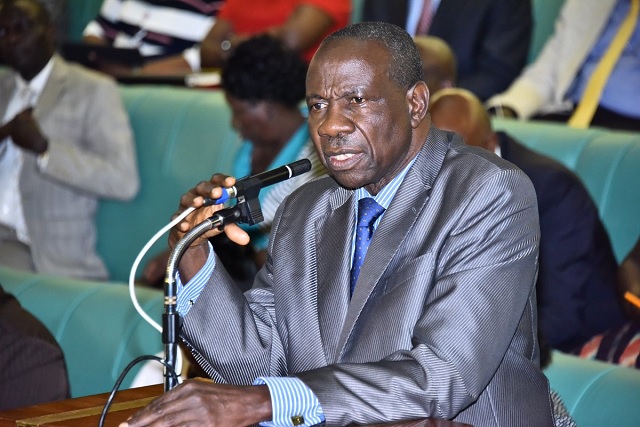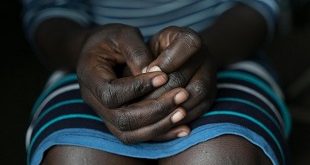
Kampala, Uganda | THE INDEPENDENT | The Chairperson of the Finance Committee, Keefa Kiwanuka has advised the Minister of Finance to re-allocate the Shs319 billion earmarked in the 2022/2023 budget for the International Specialised Hospital in Lubowa.
This was during the meeting with the Ministers of Finance, led by Matia Kasaija while appearing before the committee on Wednesday, 20 April 2022 to present the implementation guidelines of the Parish Development Model (PDM).
The Butambala County MP who is also the Shadow Minister of Finance, Muwanga Kivumbi said that government has not yet provided evidence on value for the Shs348 billion that was allocated in the 2021/2022 financial year budget.
“The committee strongly feels that without proper justification, the Shs319 billion should not be allocated to Lubowa and it is money that Parliament should appropriate elsewhere,” said Muwanga Kivumbi.
Kasaija promised to provide a detailed statement on the status of the works but quickly added that the works were delayed by the COVID-19 pandemic.
“The works were slowed down for two years because many of the experts working at the site returned to their countries. I also suggest that time is found and the MPs visit the site. It would be good for you to go there and see for yourself,” said Kasaija.
He added that the works were further affected by the disagreement between the developer and the contractor.
“I am not defending the developer but the contractor had a financial problem so they had to be terminated and another found,” said Kasaija.
In 2019, legislators together with the Minister of Health were blocked from accessing the site.
Meanwhile, the MPs warned government against politicising the PDM, saying that it risks failing to achieve its intended objective of eradicating poverty at household level if not properly managed.
According to the implementation guidelines of the PDM, the Parish Development Committee comprises local council II chairpersons, parish chiefs, chairperson of the women, disability councils and chairperson of the ruling party at the parish and an opinion leader or elderly.
Muwanga Kivumbi said that the current structure speaks to politics rather than development and proposed that consideration should be made to include a local councilor, parish priest and a member of the civil society.
“All other endeavours that we have undertaken were given political specs. People are going to think this is also an NRM thing,” said Muwanga Kivumbi.
He also questioned the rationale used to distribute the revolving fund saying that some which are more populated have been allocated less money compared to those that are less populated.
“This programme is going to hugely disadvantage some areas of Uganda. Buganda has the biggest population of about 12 million people and if we go per parish, we are going to get about Shs117 billion and yet a region with a lesser population like Eastern Uganda is going to receive about Shs33 billion,” said Muwanga Kivumbi.
Karim Masaba, Industrial Division, Mbale City MP questioned the efficacy of the mindset change campaign about the programme.
“So much money has been invested in mindset change but how do we know that people think positively about the programme. Some people think this money is free and should be eaten without paying it back,” said Masaba.
Rwampara County MP, Amos Kankunda wondered why government is implementing the PDM without baseline studies.
“Are we not likely to fail? Most of the beneficiaries do not have national identification cards and yet the National Identification and Registration Authority is failing to issue IDs to the locals,” said Bekunda.
The National Coordinator of the PDM, Denis Galabuzi clarified that the target beneficiaries are the subsistence households and not the whole Ugandan population.
“Data will be collected and that will help in planning and distribution processes. One of the activities will be household profiling. I also want to put it to you that some people live in grass-thatched houses but that does not mean they are in subsistence income category, it could be a lifestyle issue,” he said.
Galabuzi also allayed fears that the PDM is a political initiative, saying that the programme’s committee is based on good leadership.
“This is more like the parish council as provided in the Decentralization Act. These are leaders who have been entrusted by people to make decisions for them. But with bad politics some people can easily practice divisive politics and that is when the programme can go wrong,” said Galabuzi.
The PDM is a revolving fund aimed at creating socio-economic transformation by moving 39 per cent households out of subsistence economy into the money economy using parish/ward as the epicenter of development.
It emphasises the whole of government approach in ensuring increased production, processing and marketing, infrastructure and service delivery at grassroots level.
Parliament has allocated Shs17 billion shillings for the roll out of the PDM in the 2022/2023 financial year.
*****
SOURCE: UGANDA PARLIAMENT MEDIA
 The Independent Uganda: You get the Truth we Pay the Price
The Independent Uganda: You get the Truth we Pay the Price



